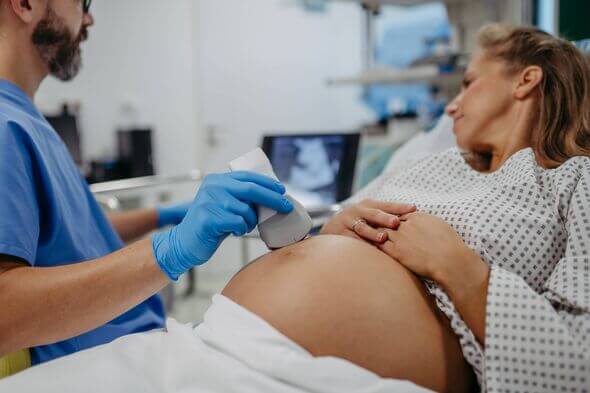Lap-band surgery also relieves chronic knee pain
Wed 21 Mar 2018, 15:27:37

Washington D.C. : Not only does lap-band surgery just augment your beauty but it also aids in easing the chronic knee pain.
According to a NYU School Of Medicine-led study, extremely obese people who have a band surgically strapped around their stomachs to restrict food intake not only lose weight but also suffer less from arthritic knee pain.
The pain, say the study leaders at NYU School of Medicine, proceeds from the deterioration and related inflammation in knee joints caused in part by the extra weight they bear. And while the pain relief seen with lap-band surgery applied to all patients with osteoarthritic knees, researchers found that it was most helpful in the youngest men and women who lost the most weight.
"Our study shows that extremely obese people seeking relief from their knee pain should consider lap-band surgery earlier because the benefits from it being successful -- although significant for all ages -- decrease with age," said study senior investigator, Jonathan Samuels.
Samuels said it is likely that knee joints and cartilage become so damaged after a certain point that there is little cushion left for weight loss to preserve. Along these lines, the research team found that people in their 40s reported nearly twice as much pain relief after lap-band as those who had the surgery in their 50s.
More than 130,000 Americans have had the procedure done since 2011, national statistics show. Although the operation is considered relatively safe, complications may include nausea, stomach ulcers, and infection.
The study authors said their findings are especially important because one in three American adults is now overweight. Studies also showed that the number of Americans with osteoarthritis has more than doubled since World War
II.
II.
The new analysis was based on the experiences of 120 patients at NYU Langone Health who underwent lap-band surgery between 2002 and 2015. All were surveyed about what they remembered about their knee pain immediately before surgery, a year after their procedure, and for as long as 14 years later.
The main purpose of the survey, researchers said, was to find out why some extremely obese people showed more knee-pain relief from lap-band surgery than others. Study participants had an average body mass index, or BMI, of 40, which equates to a 5 feet and 10 inches-tall man who weighs about 280 pounds, or a 5 foot 6 inches-tall woman who weighs 250 pounds.
According to the survey results, men and women in their 40s experienced postsurgical knee pain reductions after one year of between 50 percent and 60 percent; while those in their 50s, one year later, had pain reductions between 30 percent and 40 percent; and those in their 60s, had reductions between 20 percent and 30 percent. Pain relief persisted for a decade in all patients monitored.
Results also showed that BMI at the time of surgery did not influence whose knee pain went down the most. People with BMIs in the upper 40s were just as likely to report decreased knee pain as people with BMIs in the lower 40s if they lost proportionally the same amount of total body weight.
However, study participants who lost the most weight had the steepest reductions in knee pain. Dropping more than 13 points on the BMI scale - a measure of kilograms per meter squared based on height - halved their pain scores, assessed on a scale from one to 10, when compared to people who lost eight or fewer BMI points.
The findings from this study are published in the journal Seminars in Arthritis and Rheumatism.
No Comments For This Post, Be first to write a Comment.
Most viewed from Health
AIMIM News
Latest Urdu News
Most Viewed
May 26, 2020
Do you think Canada-India relations will improve under New PM Mark Carney?
Latest Videos View All
Like Us
Home
About Us
Advertise With Us
All Polls
Epaper Archives
Privacy Policy
Contact Us
Download Etemaad App
© 2025 Etemaad Daily News, All Rights Reserved.






























